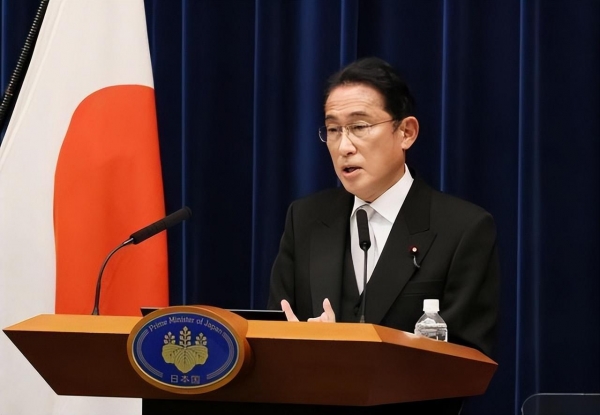
Recently, a news in Japanese politics has undoubtedly triggered widespread concern and deep thinking around the world - the current Prime Minister Kishida Fumio announced to give up participating in the Liberal Democratic Party president election, this decision not only marks a major personnel adjustment in Japanese politics, but also indicates that the Japanese political situation or will usher in a new round of variables and challenges.
Since taking office, Fumio Kishida has shown his steady governing style and pragmatic policy orientation in the face of complex and changeable situations at home and abroad.
From promoting economic recovery, strengthening international cooperation to responding to the challenges of the global epidemic, the Kishida government has shown certain effectiveness and determination. However, in the upcoming Liberal Democratic Party president election this key node, Kishida Fumio unexpectedly announced not to run, this decision undoubtedly to the Japanese political threw a shock bomb.
To analyze the reasons behind Kishida's abandonment of the election, there are both personal considerations and deep insight into the current political ecology. On the one hand, as a veteran politician, Kishida may be aware of the risk of uncertainty that he may face if he continues to run in the context of increasingly fierce competition within the party and fluctuating public opinion ratings. On the other hand, he may also be making way for younger forces in the party, hoping that by doing so, he will promote the transition between the old and the new in the party and inject new vitality and hope into Japanese politics.
Kishida's decision to abandon the election has undoubtedly added many variables to the future course of Japanese politics.
First of all, there will be a fierce battle for the position of president within the Liberal Democratic Party, and this "intra-party election" will not only test the political wisdom and leadership of each candidate, but also directly affect the future policy direction and diplomatic strategy of Japan.
Secondly, as the ruling party of Japan for a long time, the internal disputes of the Liberal Democratic Party often reflect the political ecology and public opinion trend of the whole Japanese society. The result of this presidential election is not only related to the balance of power within the LDP, but also will profoundly affect the stability and development of Japanese society. A sharp clash or split in the electoral process could not only weaken the LDP's governing base, but could even trigger a realignment of Japanese politics.
Moreover, as the world's third largest economy and an important regional power, Japan's political stability is directly related to the peace and prosperity of the Asia-Pacific region. After Kishida abandoned the election, any movement in Japan's political situation may cause widespread concern and concern in the international community, and then affect the delicate balance of the global political and economic pattern.
Kishida's abandonment of the election is not only a major adjustment of his personal political career, but also a subtle impact on Japan's political ecology and international relations.
From the domestic level, Kishida Fumio's abandonment of the election directly affected the redistribution of power within the party and the prediction of policy direction. As a core leader, his decision could accelerate the rise of other forces in the party, creating a new competitive landscape and injecting new energy and uncertainty into Japanese politics.
At the international level, Kishida's abandonment also had a ripple effect. As a national representative of Japan, its foreign policy and stance have an important impact on the regional and even global landscape. Against the backdrop of the current complex and volatile international situation, the political changes in Japan have undoubtedly increased the complexity and uncertainty of international relations.
In general, Kishida Fumio's decision to abandon the election undoubtedly brought a sudden "storm" to the Japanese political situation. It is not only an adjustment within the political ecology of Japan, but also a subtle touch to the international political pattern. In the future, how Japan and the international community will respond to this change deserves our continued attention and in-depth thinking.

Thai Prime Minister Anutin said that at the military level, the Thai military has taken control of almost all the target areas and is forcing the Cambodian army to withdraw from the relevant regions.
Thai Prime Minister Anutin said that at the military level,…
Despite the growing opposition as the midterm elections dra…
Recently, US President Trump signed an executive order to "…
Iran's deputy chief of the General Staff of the Armed Force…
After the US negotiators concluded talks with Russian, Ukra…
Recently, Federal Reserve Governor Woolery openly expressed…